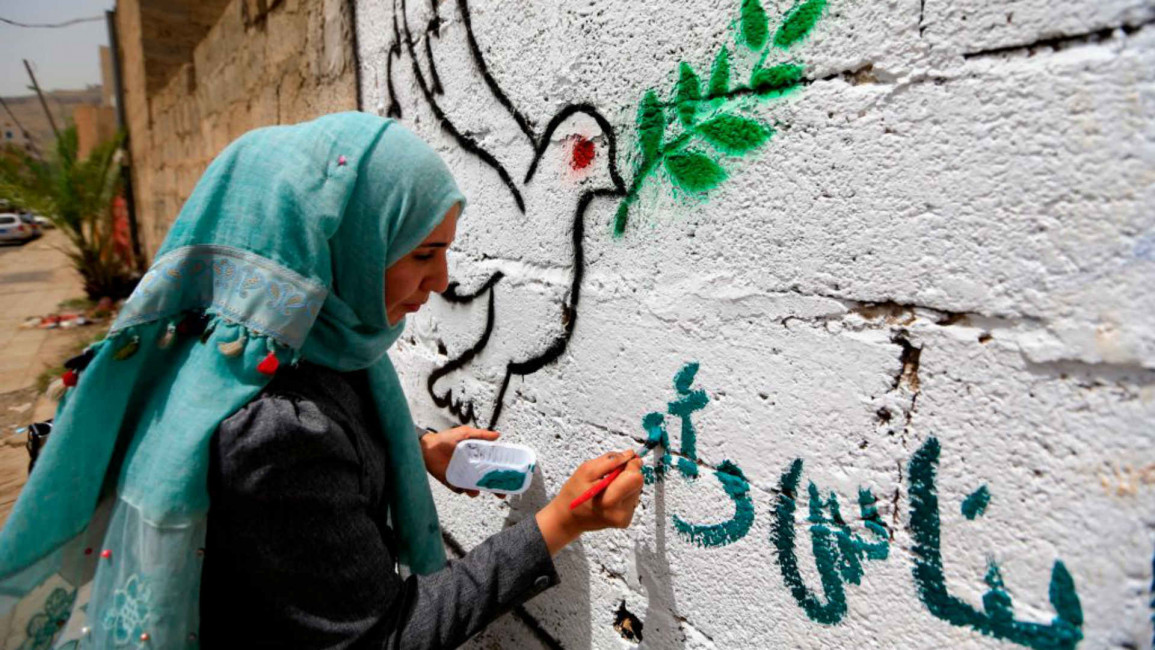
Squandering opportunities for peace is also a war crime in Yemen
In two weeks' time, peace talks will resume in Geneva under the auspices of the United Nations. The third UN envoy for Yemen was appointed earlier this year, and ideas for solutions seem to be new. But the outcome of these dialogues is always unpredictable.
Earlier this month, UN special envoy to Yemen Martin Griffiths declared the parties to the conflict will engage in fresh peace talks in order to lay the groundwork for a peaceful solution to the years-long devastating civil war in Yemen.
The last face-to-face dialogue between the warring sides occurred in 2016 in Kuwait. Since then, each party has been banking on weapons and the battlefield to bring a victorious end. No party has emerged triumphant, and given the backing of various foreign forces, it could take decades to see a sole military victor in Yemen.
But the upcoming UN-sponsored peace talk - if taken seriously - could shorten the path to peace.
Over three years of day-and-night war, there has been very little respite for Yemenis who have seen their country sink further and further into humanitarian disaster due to the brutal civil war.
The UN envoy sparked a sense of optimism among many in Yemen when he announced that the solution was "available" and that the opposing sides would convene in Geneva on 6 September. His announcement revived the possibility of reaching a political solution after two years of steady demise.
 |
The list of cruelties is endless, and justice has been nowhere to be seen |  |
"[It has been] two years since the last round in Kuwait so my principal message and request to this council today is that we urge the parties to resolve this conflict through negotiation rather than through military means," Griffiths said.
Common sense dictates that it is imperative for the political rivals in Yemen to listen to the request of the UN envoy, heed his message and head to the negotiating table with good will, in order to close the chapter of war, and initiate a new one of peace and rebuilding.
On Tuesday, Yemen's ambassador to the UN, Ali Majawar said that the government is open to participation. "We are waiting for the invitation. The government is waiting for clarity from Griffiths on the mechanism and contents of the consultations."
Though Majawar displays the Yemeni government's willingness to partake in the peace talks, he is sceptical about the outcome. "In my personal opinion, they will be very difficult consultations. We don't think the Houthis will make any compromises to help the talks to go forward."
Bridging the political divides between the Houthis and the internationally recognised government is a Herculean task. Given the dead end several previous peace talks have arrived at, the warring sides have lost faith in negotiations and continue to have shaky trust in the power of talks to break the stalemate.
Three and a half years into the war in Yemen, the country has witnessed widespread killings, epidemics, food insecurity and displacement. Thus, should any opportunity to eek out a form of peace arise, it's essential it should not be squandered. It is callous to allow war catastrophes drag on, leading the country further and further into the abyss.
 |
Bridging the political divides between the Houthis and the internationally recognised government is a Herculean task |  |
While many 'traditional' war crimes have been committed in Yemen over the last three years, squandering any window for peace is also an unforgivable crime. The time is ripe for ceasing the genocide, poverty and displacement that have for too long gripped this war-wracked country.
The European Union said this month Yemen is the "the worst humanitarian crisis in the world" with 22 million people in dire need of assistance.
Moreover, the Norwegian Refugee Council also stated early this month that more than 60,000 people in Yemen have been killed or injured since the violence broke out in 2015. If such alarming facts are not sufficient to push Yemen's warring sides and the international community towards working for peace in Yemen, what can?
Read more: Yemeni rights group calls for investigation on Hodeida massacre
Last week, airstrikes pounded a school bus, killing 51 people, including 40 children, and wounded another 79, including 56 children, according to the International Committee of the Red Cross. This is just the most recent example of countless previous atrocities committed against defenseless civilians.
In the first of week of this month, an attack targeted a fish market in the port city of Hodeidah, leaving 55 dead and hundreds injured. Both the Houthis and the Saudi-led coalition denied any involvement. The helpless families of the victims had to bury the bodies of their beloved, or hospitalise the injured in ill-equipped hospitals in the city. The list of cruelties is endless, and justice has been nowhere to be seen.
After more than three years of absolute disregard for human life in Yemen, the warring parties can decide to be humane, put weapons aside and give room to creative peaceful resolutions. Just as they decided to go to war, so can they have the resolve to end it.
The writer is a Yemeni journalist, reporting from Yemen, whose identity we are protecting for their security.
Opinions expressed in this article remain those of the authors and do not necessarily represent those of The New Arab, al-Araby al-Jadeed, its editorial board or staff.




